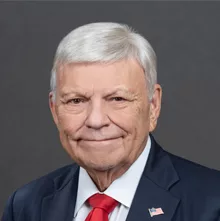The PVF industry is entering the second half of the 2021 recovery from the COVID-19 pandemic disaster with the continuing plethora of regulations as well as the Biden administration stalling Artic National Wildlife Refuge (ANWR) oil work, possibly for years.
Interior Secretary Deb Harland issued an order June 1 suspending all activities related to leasing for oil exploration on the coastal plain of the ANWR pending a comprehensive new environmental analysis.
Secretarial Order 3401 says the directors of the Bureau of Land Management and the U.S. Fish and Wildlife Service “shall not take any action to authorize any aspect of the program, including, but not limited to, any leasing, exploration, development, production, or transportation, and shall not process any pending or future applications for such activities.”
Given the amount of time needed for an environmental impact statement, the Interior Dept. order could easily delay lease processing by two years.
“The Biden administration’s action is not unexpected but is outrageous nonetheless,” says Senator Lisa Murkowski, R-Ala., in a statement reacting to Harlan’s order.
She adds: “The oil and gas leasing program established by the Trump administration meets the legal mandates required by Congress, including imposing a framework with a range of environmental safeguards.”
Keystone XL Called Off
Canada’s TC Energy Corp. and the Albertan provincial government stated June 9 that they would scuttle the Keystone XL oil pipeline project, ending a yearlong controversy over an effort to pipe Canadian crude to the U.S. refinery geared to process heavy crude.
TC Energy did not elaborate on the what brought them to the final decision to terminate the project. It did allude to President Joe Biden’s decision and said it completed a comprehensive review of its options before making the final decision.
Emboldened by the successful fight to terminate the Keystone XL, protesters have taken aim at other Canadian pipelines. Protesters in Minnesota clashed with authorities as they demonstrated against Enbridge Inc.’s construction of its crude oil Line 3 artery through the state. In Michigan, Gov. Gretchen Whitmer is trying to revoke the permit allowing Enbridge to transport oil and natural gas under the Great Lakes.
“It’s a disgrace President Biden played politics and killed the Keystone XL pipeline,” says Austin Knudsen, Montana’s attorney general. He and the Texas attorney general are the lead plaintiffs in a 23-state lawsuit to overturn the cancellation. It isn’t clear as to what happened to that lawsuit.
Construction Starts Down
Final investment decisions are temporized by the prospects of new taxes, increased regulations, higher material costs, supply-chain disruptions, along with the increases in shipping’s costs exacerbated by the shortage of equipment and qualified drivers.
Engineering News Record [KF1] reports construction starts are down across the country:
- Southwest central, -14 percent
- Northwest central, -13 percent
- Southern Atlantic, -2 percent
- Pacific, -12 percent
- New England, -17 percent
- Middle Atlantic, -28 percent
- Southeast, +1 percent
- Northeast central, -14 percent
The CEO of the Mechanical Contractors Association of America (MCAA), Timothy J. Brink, indicates that for the most part, mechanical contractors remain optimistic. However, the Western Region is seeing a softer demand while the Central Region is reporting an increase in demand outpacing the overall national picture.
Brink states that opportunities exist as more data centers will be needed to house the increasing amount of information demanded by the advent of new technologies. New opportunities also will appear in the conversions from fossil fuel-based energy to more renewable sources.
He notes that increases in the costs of lumber, dry wall, copper, pipe, valves, fittings — the spectrum of materials required for the construction industry — are exerting extreme pressure on construction budgets and profit margins. The aforementioned problems, along with the delays incurred in delivery of these materials, only exasperate the issues facing new construction.
3Q Southeast Industrial Manufacturing
The U.S. Southeast region (Alabama, Florida, Georgia, Mississippi, Tennessee and Puerto Rico) is set to see $6.7 billion in planned projects starts in the industrial manufacturing industry during the third quarter. The large terminal expansion project of the Georgia Ports Authority (Savannah, Ga.) leads the project spending, accounting for more than one-third of the combined TVI of the combined value of the projects.
In addition to the rise in container shipments requiring port expansion, the Southeast is seeing a large number of projects involving data centers. Amazon projects include a grassroots sortation center in Emerson, Ga. (35 miles northwest of Atlanta). The project includes the construction of a five-story, 2.6 million-square-foot building.
Amazon plans to start up projects in Alabama, Florida, Mississippi and Tennessee, adding up to more than a billion dollars in combined spend during the third quarter.
Data center Switch is planning a third-quarter $800 million expansion of its “The Keep” data center on the west side of Atlanta.
Alabama seems to be very attractive for the automaker industry. Hyundai is beginning the Phase III expansion of its 390,000-vehicle/year facility in Montgomery during the third quarter.
West Point, Ga., also will see Hyundai expanding its automatic transmissions manufacturing plant by constructing a 640,000-square-foot building with equipment to produce eight-speed transmissions.
Spending Growth
The North American Industrial Project Spending Index maintained its upward path year-to-date, registering 37.69 percent growth thru the end of April.
All U.S. market regions, except for the Great Lakes, registered year-over-year spending growth, notes Industrial Info Resources. The Southwest is seeing the largest gain with an increase of $37.16 billion.
Economic activity for all 18 industrial sectors followed by the Institute of Supply Management (ISM) grew in in April; however, the ISM’s Purchasing Managers Index was down 4 percent from the March reading.
Timothy Fiore, chair of the ISM Manufacturing Business Survey Committee, says companies surveyed continue to struggle to meet surging demand as the country emerges from the COVID-19 pandemic due to limited availability of parts and materials.
“Recent record-long lead times, wide scale shortages of critical base materials, rising commodities prices and difficulty in transporting products continue to affect all segments of the manufacturing economy,” he notes. “Worker absenteeism, short-term shutdowns due to part shortages and difficulties in filling open positions continue to be issues that limit manufacturing growth potential.”
Rising prices, lengthened lead times coupled with rising handling and shipping costs for offshore PVF products that include, but are not limited to, carbon steel butt-welding fittings and forged steel flanges emphasize the need to focus on more reliable domestic sourcing.
Recent industry-wide price increases for offshore and domestic butt-welding carbon steel welding fittings and forged steel flanges are a reflection of rising costs due to the aforementioned forces.
Additional increases are anticipated in the near future as the escalation of steel prices and transportation costs continues. It is recommended you keep in close contact with your manufacturer/supplier as not to be impaired by the lack of product and an increase in cost.
PVF Roundtable News
The PVF Roundtable’s Don Caffe Memorial Golf Tournament, held June 7 at The Clubs of Kingwood Golf Course, was a resounding success for the PVF Charitable Foundation with more than 440 participants.
The golf tournament and TroutBlast are the two major fund-raising events held by the PVF Roundtable Charitable Foundation. These funds are dedicated to the PVF Roundtable scholarship programs.
As a member of the board of directors, and I speak for all members, we thank for your participation in these events.
I also want to thank The Wholesaler magazine and the PVF Roundtable for my induction into The PVF Hall of Fame at the PVF Roundtable’s June 8 meeting. It is a great honor to join this group of industry leaders; I humbly accept with great gratitude to all who supported me and support our industry.
The third networking meeting of 2021 will be held Aug. 10. beginning at 4:15 p.m. (CDT) at The Bell Tower on 34th in Houston.
These meetings are a unique venue for you, and your associates, to network with your peers in the PVF industry. They provide the platform to share information, discuss pertinent issues, meet new contacts, develop new and long-lasting friendships, and to pursue new opportunities in the industry.
[KF1]What is your policy on this type of mention?





